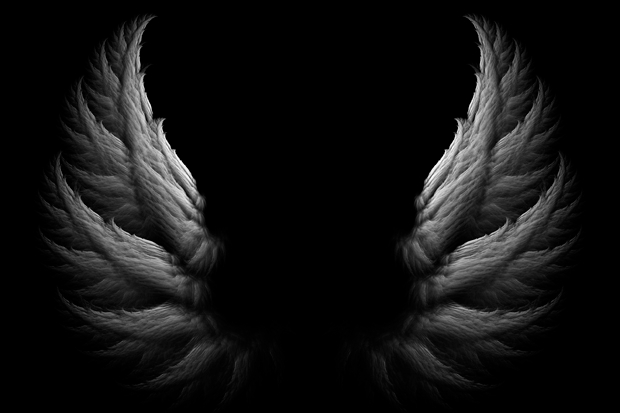Shades of The Master and Margarita haunt Rabih Alameddine’s sixth book, in which Jacob, a Yemeni-born poet with a day job in IT, battles with drugs, insanity, visions of the Devil and a variety of Christian saints while trying to come to terms with the fallout from the Aids crisis. As that crisis wore on, ignored by the powers-that-be, Jacob’s lover and all of his closest friends died, leaving him with an apartment full of ashes and an eye-watering variety of instructions for their disposal. Yet, while echoes of Bulgakov’s masterpiece inform The Angel of History from first to last (there is even a cat named Behemoth), Alameddine has created a scintillating, original work whose moral complexity and detail of observation are wholly contemporary and entirely his own.
The novel opens with Death and Satan waiting patiently in Jacob’s San Francisco apartment, while the poet tries to check himself into the ‘nuthouse that is St Francis’ for a precious 72 hours’ hiatus from life on the streets. They are competing for the poet’s life and for his soul, but there is, on the surface, no urgency to their ‘interview’ and, as the conversation opens, we get a sense of their world-weariness and contempt for everyone, from St Francis himself (a ‘narcissistic nincompoop of a saint… a holier than thou, Peta-idolising numbnuts’) to the moral and intellectual vacuity of contemporary society: ‘Wasn’t short attention span invented in these united states of amnesia?’ While they wait, Satan conducts further interviews with the 14 saints — all of them decanonised by the Catholic Church, all originating in the Middle East — who make up Jacob’s personal cultus.
Meanwhile, Jacob himself wanders the city, remembering former lovers and incidents from the 1980s Scene that began so beautifully but ended with the Castro turning into a kind of inner ghost town, (Alameddine’s invocation of this is utterly unsentimental and truly heartbreaking). He talks to his dead lover, Doc, recalling the man’s beauty as well as his cruelty, but he also acknowledges his own infidelities, including several chilling brushes with the Scene’s uglier side, to which, as little more than a boy, he offered himself up in masochistic purity, ‘the lowest of the low… an Arab… the son of a whore’.
Wound in with these musings and memories are poems, observations, the sad and very funny story of the lovers’ ashes, a beautifully incandescent rant in a fancy restaurant and several self-contained chapters entitled ‘Jacob’s Stories’, tight, satirical fables that, especially in the tale of rich Americans keeping Arabs as pets (less inconvenient than dogs, when properly trained), are reminiscent, in tone, of Swift’s A Modest Proposal.
Adding to this range of allusion, Alameddine’s title refers, of course, to Walter Benjamin’s own much-discussed fable, in which the Angel of History wants ‘to stay, to awaken the dead, and make whole what has been smashed’, but is now at risk of destruction himself, as ‘a storm blowing from Paradise … irresistibly propels him into the future to which his back is turned, while the pile of debris before him grows skyward’.
In his own way, Jacob, with his scrapbook of poems and memories and an ever-mounting pile of debris (in this case, the ashes of those he has loved), is a recording angel, exposing a society whose present shame is deeply rooted in the brutal policies of the Reagan years (and in their subsequent airbrushing out of the historical picture). But even as he bears savage and relentless witness to his times, his refusal to forget leaves him isolated and marginalised, as ‘the storm… we call progress’ grinds inexorably into an ever more inconsequential future.






Comments